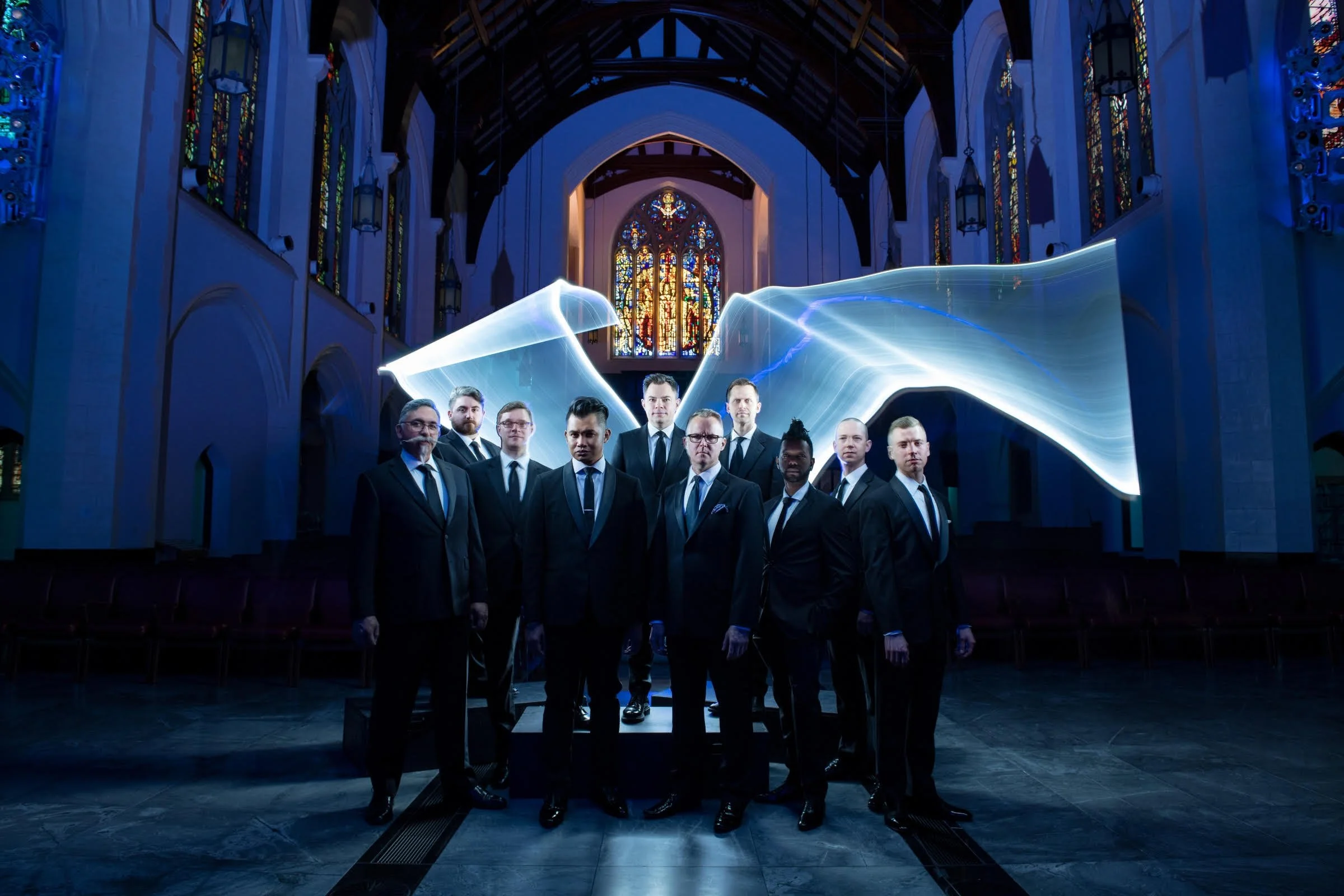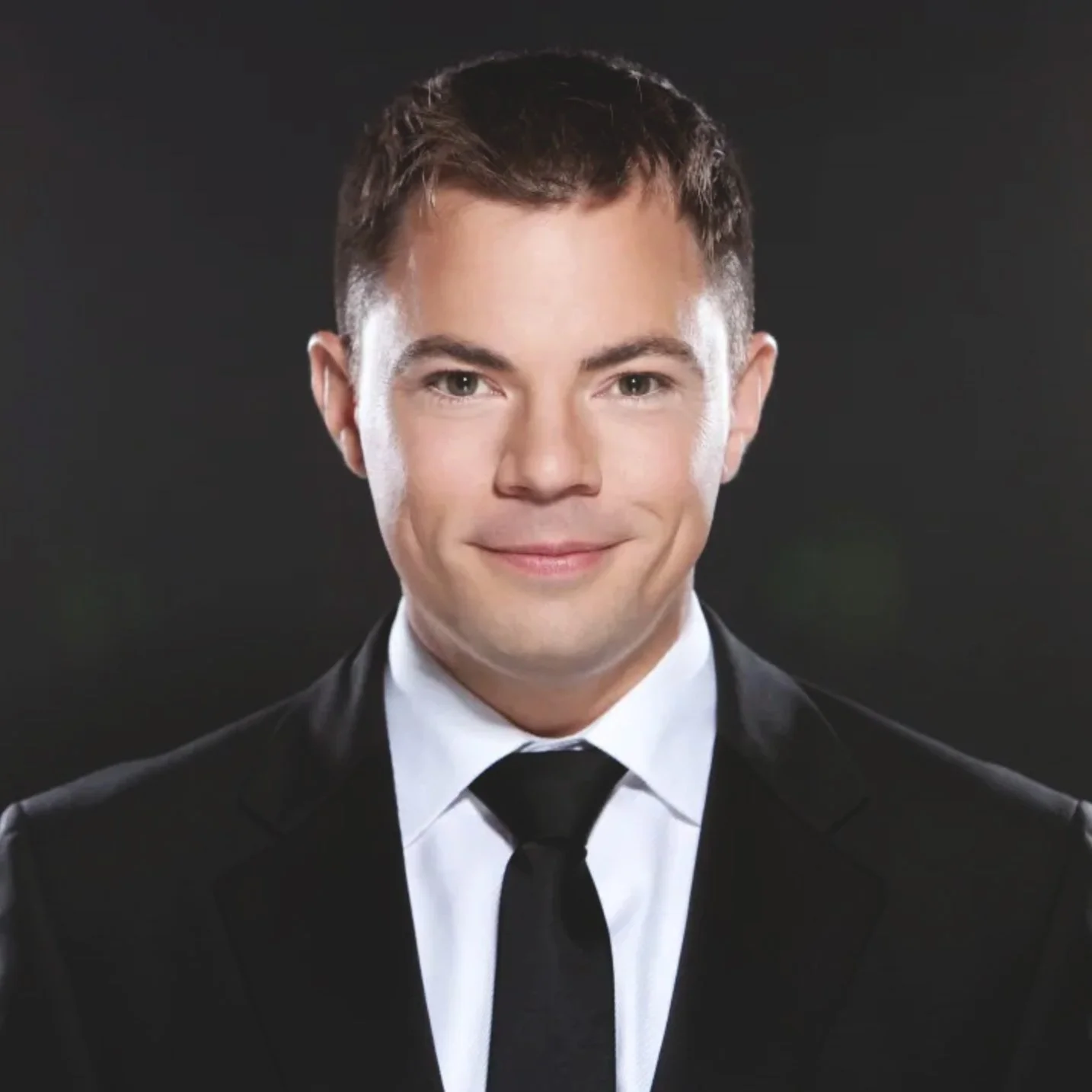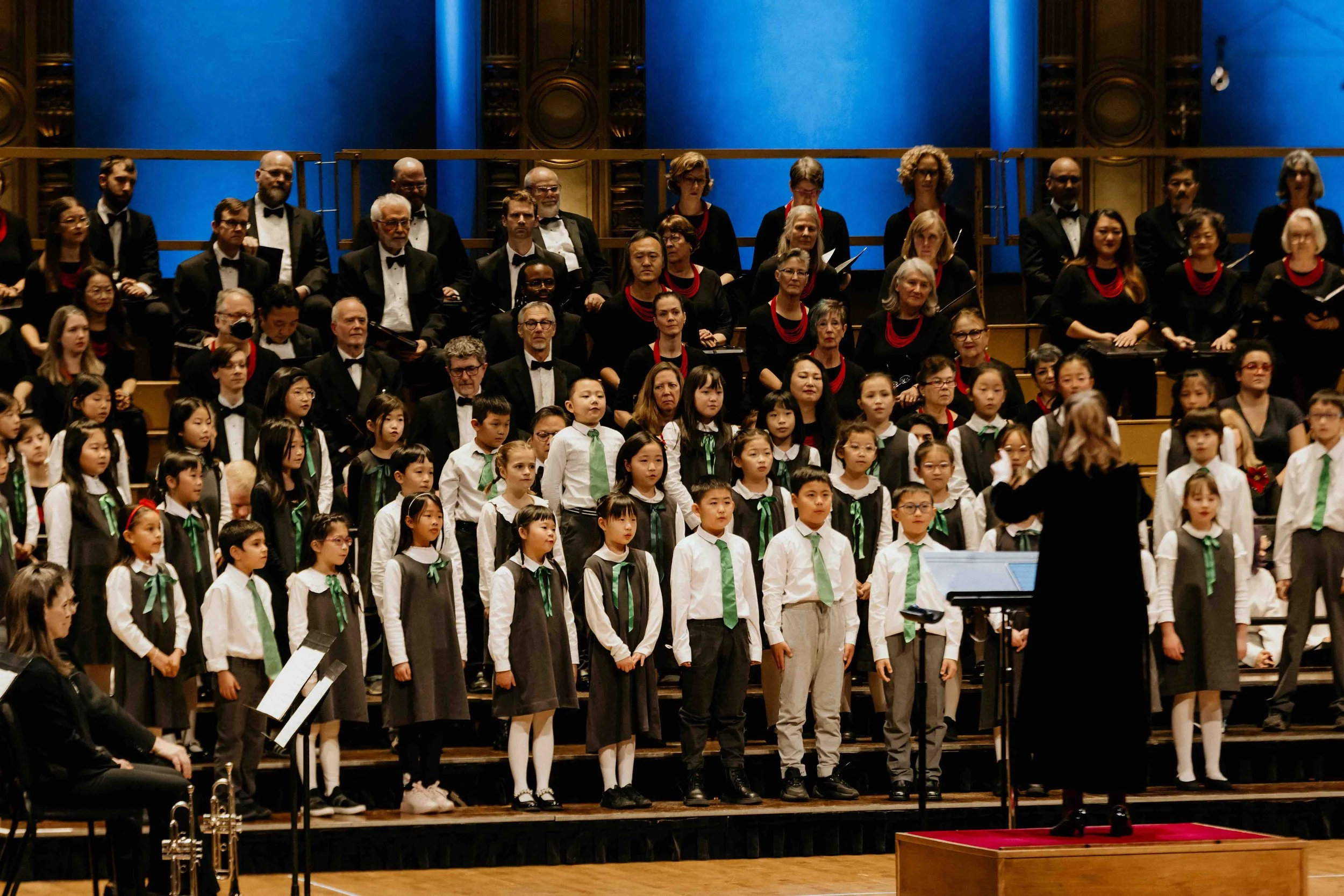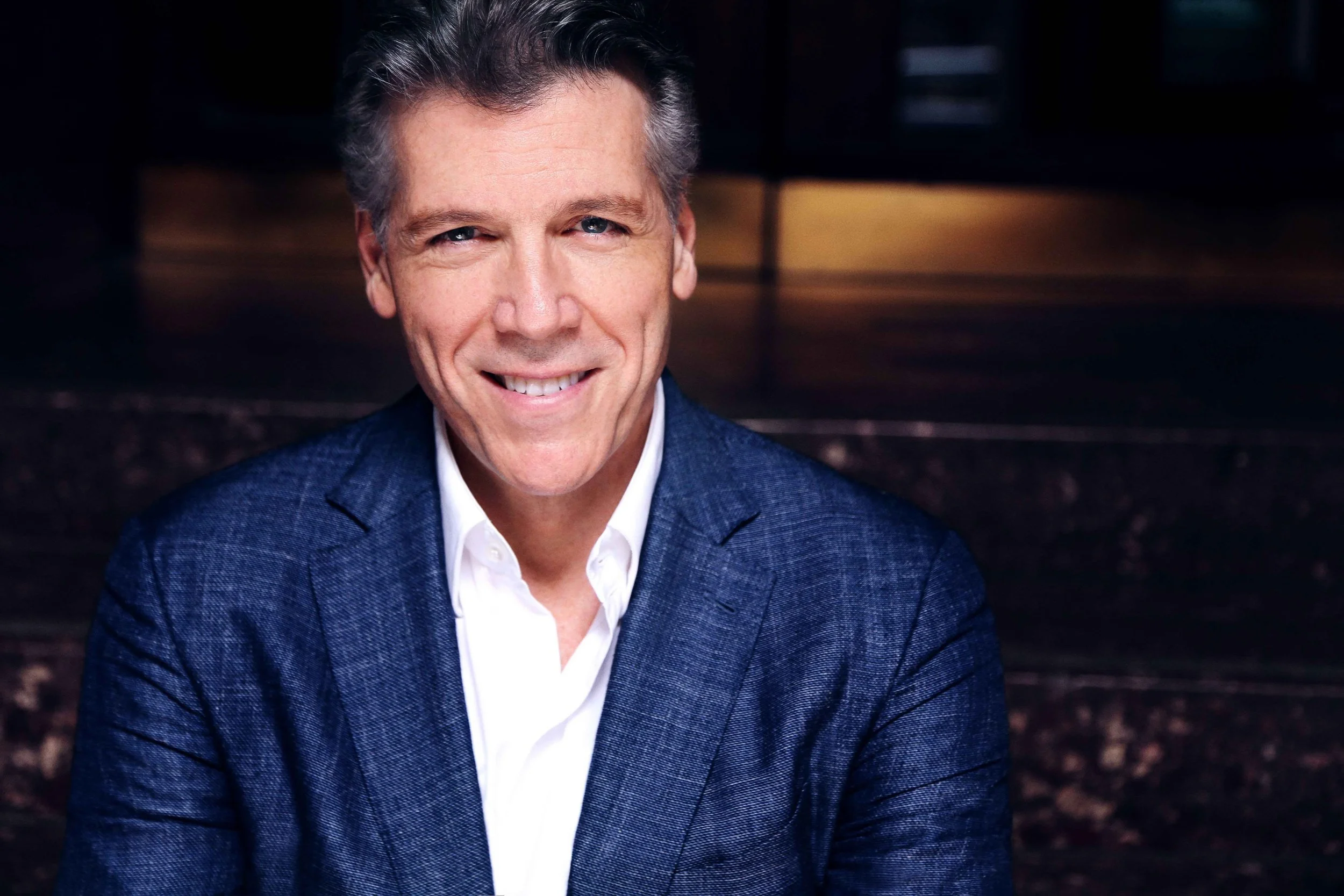Vancouver's Chor Leoni sings of mental health and wellness in The Turning
Upcoming concert features The Leonids, the choir’s all-star ensemble, in a program that celebrates music as a healing force
Chor Leoni. Photo by David Cooper
Chor Leoni presents The Turning: Chor Leoni & The Leonids on May 11 at 7:30 pm at St. Andrew’s-Wesley United Church and VanMan Summit Concert on May 13 at 7:30 pm at the Chan Centre for the Performing Arts
INNU FIRST NATION member Alex Vollant moved to Vancouver from Quebec right when the first wave of the pandemic hit in 2020. It was an emotionally challenging time, being isolated in a new city, made even more difficult because of the fact that the UBC School of Music student was experiencing severe mental-health challenges while confronting the intergenerational trauma of residential schools, which his grandparents were forced to attend. A turning point happened during Vollant’s second year here, when a friend, who’s a member of Chor Leoni, invited them to a concert. The singing lions performed Kate Bush’s “Army Dreamers” arranged by Ken Cormier. The experience proved utterly transformational.
“I love choirs; it’s a wonderful way of reaching other dimensions of expression than at a piano,” Vollant tells Stir in a phone interview. “I didn’t even know Kate Bush, but the song was amazing. Seeing Kelk onstage was such an incredible moment, and I just lost it. I started sobbing.”
Looking at the program afterward, Vollant noticed the email address for artistic director Erick Lichte. They got in touch, auditioned, and, not long after that concert, Vollant was getting out their tux and rehearsing for the Christmas show. Joining the choir has had a powerful impact on Vollant, in a few ways.
“It really did change my life and opened up the entire vocal world to me, which never had been an option or a consideration for me before,” Vollant says. “I am now wrapping the second season with Chor Leoni and about to start vocal performance studies at UBC, to fully make the switch from piano and fully embrace the world of singing. I think Erick and everyone at the choir has helped me find this instrument I had in myself but always felt too vulnerable to share. Being in a room full of men who do that gives you the message that it’s okay to do that—to share and to be vulnerable. Being able to sing opened up so much for me.
“When I was younger I sang a lot, but when I hit puberty my voice changed, and I stopped singing when I left the [Innu] community [for Quebec]. I never sang again so I was losing community, losing home, losing those roots to some extent. I’m finding home again with Chor Leoni. It’s my home away from home. When you grow up in a community that is so close and so tight, it’s hard to find something similar—a village of people who care for each other. Chor Leoni is exactly that. My voice is coming back.”
Vollant will be singing his heart out in the upcoming concert, The Turning: Chor Leoni & The Leonids. Its theme hits close to home for Vollant, as the choir and its all-star ensemble celebrate strength, versatility, and mental health and wellness, with music being a healing force. The performance is part of the organization’s annual VanMan Summit, a gathering of more than 200 singers of all ages for a full week of mentorship, rehearsals, and performance. (The week culminates in the VanMan Summit Concert.)
The Turning features commissioned and existing works that explore mental well-being, including the world premiere of Sarah Rimkus’s The Watcher of the Wood, a deeply personal and poetic exploration of post-traumatic stress disorder performed by Chor Leoni, The Leonids, and its Emerging Choral Artist Program.
“[Rimkus] approached me about setting a text written by her husband, Thomas LaVoy, about his experience with PTSD,” Chor Leoni’s artistic director Erick Lichte tells Stir. “Sarah and Thomas hoped that Chor Leoni could be the right vehicle for expressing Thomas's perspectives with this disorder and getting to a place of vulnerability. It was clear to me that this work was about the transformation from isolation to connection, and I wanted to create a program that created this as a full journey.
Erick Lichte.
“It is always important to explore themes of mental health,” Lichte adds. “Our organic process in commissioning Sarah Rimkus has led us to deal with this topic more overtly, both on stage and as a choral community. This felt authentic to tell Thomas and Sarah's stories, but then also to create space for singers in the choir to share their own journeys and stories. It is paramount to me that we actively create a space of openness and support as a choir, where each of us can lean on one another when we need it.”
Rob McAllister has been with Chor Leoni since day one, when it launched in 1992 under the late Diane Loomer, and he says the choir has been a vital part of his mental-health journey. That same year, he became wholly devoted to the evangelical church, a relationship that lasted some 25 years. While many of Chor Leoni’s members are openly gay, his own sexual orientation was not something he felt he could share with the religious organization.
“They were intolerant, I would go so far as to say bigoted, very judgemental,” McAllister says. “The two paths in my life were not in any harmony.” One day, he was invited to have a discussion with the church about being gay, which he hoped was going to be productive; instead, it was an evisceration of his sexual orientation, and he was devastated to the point of being suicidal. He called his boyfriend and his mom to leave a voice message saying goodbye. To his surprise, both happened to pick up the phone. They convinced him otherwise.
“I never opened the door to that church or any other church from that day on,” says McAllister, who met his partner through the choir. “I stuck with Chor Leoni. My spirit was bleeding and raw. It was horrible. Over the next few weeks, months, and years, I can honestly say to this day Chor Leoni has provided such strength and encouragement and community; it has been a medicine to my wounds. The support provided by the men and encouragement by leadership just kept me going and still keeps me going. My own family is wonderful, but this is my chosen family.
“For many years I didn’t talk about mental health,” he adds. “Erick has just taken this program head-on into that territory, putting a gentle spotlight on it and providing a space for people to explore mental-health issues and to be open about what you’re going through. We are not alone, and we don’t need to go through our mental-health journeys or any of life’s journeys alone.”
Among the other pieces on The Turning program is its titular work by Maura Bosch, which was created after she worked with patients in an anger management class. It has been called a “quiet masterpiece”, one that Lichte says was one of the most transformational works of his career. “I had never been a part of giving voice to real people, folks who each had done some things in life where forgiveness might not be easy,” he says. “It was a life-altering experience just giving voice to, not necessarily condoning, a person through art. I think people will feel lots of conflicting emotions in these pieces, and I think all of these reactions are valid.”
Italian composer Giovanni Bonato’s “Sugav Rahu” sets a Celtic prayer in Estonian about “deep peace” and represents a tour-de-force choral work performed in surround by eight separate choirs. “It's is the most immersive piece of music I have ever conducted,” Lichte says.
“Certainly this program reflects our artistic vision of pushing boundaries of repertoire and expression,” he adds. “But more than this, Chor Leoni's mandate is to serve its communities, both internal and external. A project like this hopefully can create more overt and active conversation about how we can support and uplift one another.”
Vollant adds: “Music can change us, change communities, and change society. We are at a time where perceptions on mental health are changing. A lot of people are realizing it is okay to talk about it, to be vulnerable, to be weak. I think having a group of men in tuxedos being able to sing about that is a powerful thing.”














